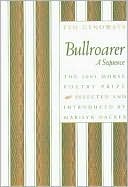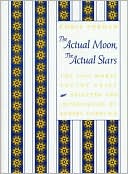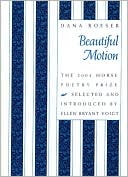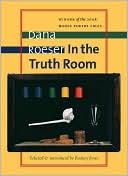Poem About Obama's Late Grandmother Wins New Millennium Contest
A couple months ago we told you about the establishment of a one-time-only contest for the best creative writing on the subject of president Barack Obama. Don Williams, the editor of the annual literary magazine New Millennium Writings offered a thousand dollars for the poem, story, or essay that effectively marks "this moment in our still-young millennium." Yesterday he announced a winner: Naomi Ruth Lowinsky of Pleasant Hill, California, for her poem "Madelyn Dunham, Passing On." According to Williams, Lowinsky's poem "imagines the spirit of Barack Obama's deceased grandmother gracing proceedings the night of his election."
Three other writers received additional hundred-dollar prizes: Suellen Wedmore of Rockport, Massachusetts, for her poem, "Because," a lyrical catalogue of events and forces that contributed to Obama's victory; Sarah Miller of Somerville, Massachusetts, for her essay "By Contrast," which compared the previous administration to a New England winter; and Frances Payne Adler of Portland, Oregon, for "In the White House," a joyful imagining of the first hours of occupancy of the White House by the Obama family. All four winning pieces will appear in the next issue of New Millennium Writings, which is due out in November.
In addition, twenty submissions were chosen for honorable mention. The authors are Veda M. Ball of Boulder, Colorado; Craig Barnes of Santa Fe, New Mexico; Tricia Coscia, Morrisville, Pennsylvania; Deborah Cooper of Duluth, Minnesota; Darlene Dauphin of Missouri City, Texas; Terry Ehret of Petaluma, California; Paula Friedman of Parkdale, Oregon; N. R. Gair of Newton, Massachusetts; Darryl Halbrooks of Richmond, Kentucky; Maryanne Hannan of Delmar, New York; F. Gerald Jefferson of Cleveland, Tennessee; Langston Kerman of Ann Arbor, Michigan; Ann Killough of Brookline, Massachusetts; Andrew Lam of San Francisco, California; Herbert Lowrey of Washington, DC; Barbara March of Cedarville, California; SheLa Morrison of Gabriola Island, BC; Garrett Rowlan of Los Angeles; Jesse Tangen-Mills of Bogota, Columbia; and Diana Whitney of Brattleboro, Vermont.
"Judging these awards was a privilege," Williams wrote in an e-mail. "Competition was stiff. We appreciate all who contributed to the success of this contest."











